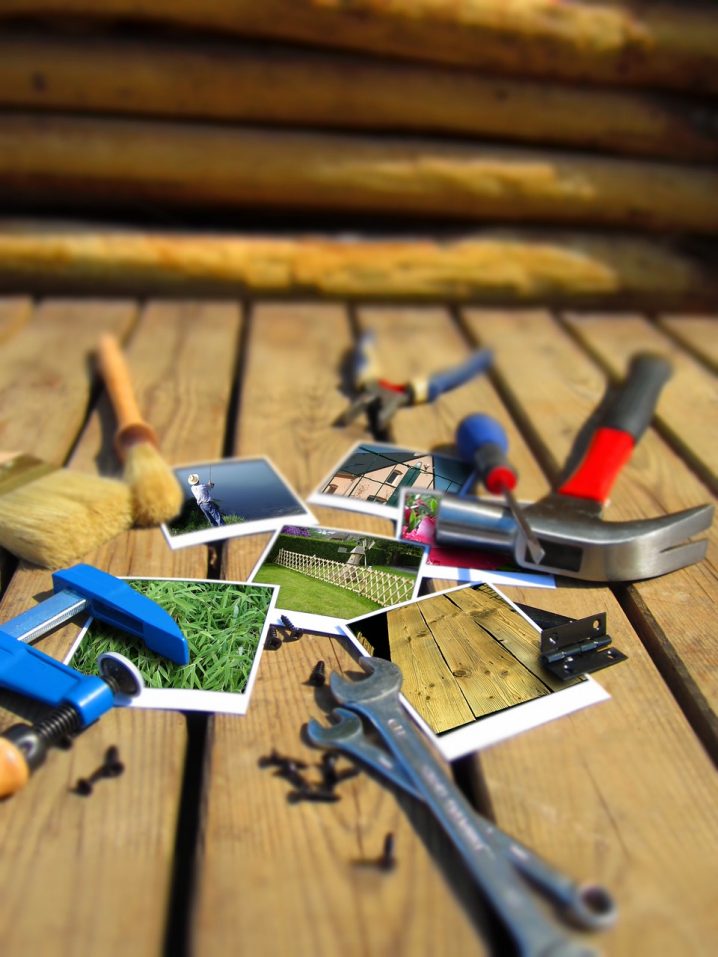Whether you need to make some repairs around the house from time to time or engage in some serious DIY, you should think of acquiring at least a minimal set of tools necessary to handle most tasks. However, unless you are going to dedicate a huge portion of your life to DIY projects, it is a good idea to start with getting the most versatile tools that can carry out multiple functions. So what should you start with?

Japanese Cat’s Paw
It is a hammer, a nail puller, and a chisel all combined in a single sturdy tool. It may look a bit weird at first glance, but try it out once, and soon you will be using it for all sorts of things.
Screwdriver
Screws hold together everything from furniture to machinery and tools themselves. If you are going to fix almost anything in your home, you are going to need a screwdriver – according to experienced home repairers, it is the single most commonly used tool. There are two general types of screwdrivers – flat-head and Philips. You can either get a full screwdriver set featuring a number of tools for the screws of different types and sizes or if you want to save a little space in your toolbox, buy a single all-in-one screwdriver to fit all your needs.
Cordless Drill
A cordless drill can be used for anything from putting together flat-pack furniture to driving screws into wood and brick to drilling holes in all sorts of materials. In other words, whatever you projects tend to involve, you are likely to need one. It is hard to single out the best drill, as different types and models are best suited for different situations. A lightweight general-use drill is better for small tasks around the house as it is easy to handle, while you will need a heavy-duty impact drill if your projects involve masonry. If you are looking for maximum versatility in a single tool, choose a combi-drill, combining the functions of a drill-driver and a hammer drill.
Adjustable Wrench
Most of the things that are not attached with nails and screws use nuts and bolts. To take them apart, you are going to use wrenches. Normally, you should have a whole set of wrenches to be ready for any contingency, but you can forgo the need for it with a single adjustable wrench capable of altering its size to fit the nuts of many different sizes. Of course, specialized tools are better suited for their purpose, but if you do not want them to occupy half of your toolbox, an adjustable wrench is a lifesaver.
Utility Knife with Disposable Blades
A utility knife (sometimes generically called a Stanley knife) is an essential tool for all the situations in which it is tricky to use scissors. It is easy to use and safe to carry around. The best models have built-in storage for additional blades – this way you will always have a spare handy – and a belt hook that makes it easy to carry on your tool belt.
Handsaw
A handsaw is an excellent tool for all the situations in which it is impossible or inconvenient to use a power saw – for example, to make quick cuts in wood at angles that make power saws difficult to handle. The best models have replaceable blades – if you use them, you will not have to replace the entire tool in case the blade gets damaged.
Tape Measures
In DIY, accurate measurements are essential for all but the most primitive jobs. Which means that you are going to need a suitable tape measure. When buying, keep an eye on how durable the entire tool is: you will use it often, which means that both the case and the blade should be able to take a lot of punishment.
Compiling your first DIY toolset may seem like a tough job – but get the tools we have mentioned here, and you will be able to do most jobs you have around the house. If need be, you can always expand it to include what you find to be necessary as you go along.



